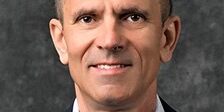Ovidiu Daescu
Professor and Department Head, Jonsson School Endowed Chair, University of Texas at Dallas
Abstract: Recent advances in artificial intelligence and machine learning, and the emergence of deep learning, have catalyzed the academic community and the commercial enterprise into research and development of automated decision support systems, most of which are rooted into automated image and text understanding. Knowledge first approaches, that fall mostly under traditional machine learning, have partly lost ground in the last decade to data first approaches, spearheaded by deep learning. More recently, the lack of interpretability of the latter, as well as documented catastrophic failures, has led to a resurgence of knowledge first approaches. In this talk I will outline personal experiences with the two approaches in developing automated medical decision support systems, how topological data analysis may help with interpretability, and dive a bit into automated decision support for smart cities.
Dr. Ovidiu Daescu, an internationally recognized expert in algorithm design and optimization, biomedical computing, and applied machine learning leads one of the largest computer science departments in USA. He earned an undergraduate degree in Computer Science and Automation from the Technical Military Academy of Bucharest, Romania, in 1991, and MS and PhD degrees in Computer Science and Engineering from the University of Notre Dame, USA, in 1997 and 2000.
Dr. Daescu has developed best-to-date, and often optimal, solutions for a few well-known problems in facility location, path planning, and nearest neighbor queries, and machine learning based decision support solutions for medical applications. He has been involved in the expansion of bioinformatics, bioengineering and data science at UT Dallas and until recently was site director for the iPerform Center for Assistive Technologies to Enhance Human Performance, a National Science Foundation (NSF) Industry-University Cooperative Research Center.
Dr. Daescu has authored more than 200 publications, has graduated 12 PhD students and advised many master students and undergraduate students. His research has been supported by the National Science Foundation of USA, the Cancer Prevention and Research Institute of Texas, University of Texas Southwestern Medical Center, Children’s Health and industry partners. He is a Jonsson School Endowed Chair, Department Head of Computer Science at The University of Texas at Dallas, a member of the Computing Research Association Government Affairs Committee, a life member of the UTD Chapter of the Phi Kappa Phi Honor Society, and member of the ACM, ACM SIGBio, and IEEE-CS.

